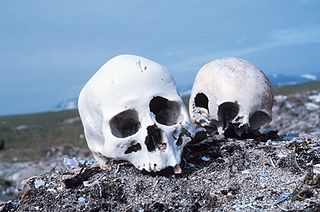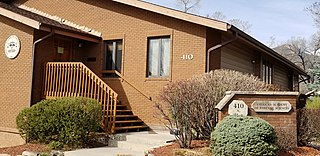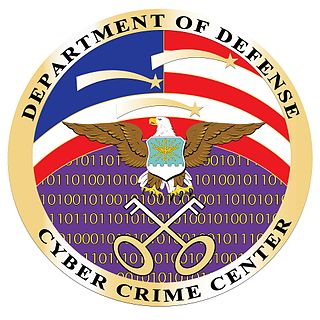Related Research Articles

Forensic science, also known as criminalistics, is the application of science to criminal and civil laws, mainly—on the criminal side—during criminal investigation, as governed by the legal standards of admissible evidence and criminal procedure.

Forensic pathology is pathology that focuses on determining the cause of death by examining a corpse. A post mortem examination is performed by a medical examiner or forensic pathologist, usually during the investigation of criminal law cases and civil law cases in some jurisdictions. Coroners and medical examiners are also frequently asked to confirm the identity of remains.

In forensic science, questioned document examination (QDE) is the examination of documents potentially disputed in a court of law. Its primary purpose is to provide evidence about a suspicious or questionable document using scientific processes and methods. Evidence might include alterations, the chain of possession, damage to the document, forgery, origin, authenticity, or other questions that come up when a document is challenged in court.

The American Academy of Forensic Sciences (AAFS) is a society for forensic science professionals, and was founded in 1948. The society is based in Colorado Springs, Colorado, USA. The AAFS is a multi-disciplinary professional organization that provides leadership to advance science and its application to the legal system. Despite the name, the AAFS has members from over 70 countries, and the current president is from the Netherlands. The objectives of the AAFS are to promote professionalism, integrity, competency, education, foster research, improve practice, and encourage collaboration in the forensic sciences. The AAFS has established several other organizations to further professionalism within the forensic sciences, including the Forensic Science Education Programs Accreditation Commission (FEPAC) to accredit collegiate forensic science education programs, and the Academy Standards Board (ASB) to develop and promulgate standards for areas of the forensic sciences without a standards body.

The West Virginia State Police (WVSP) is a state law enforcement agency in the United States that provides police services to the residents of West Virginia. It is the fourth-oldest state police agency in the US. The WVSP was disbanded due to their involvement in quelling of the uprisings on behalf of the coal and mine companies which were surrounding the concept of organized labor in the coal and mine industries. The WVSP was then reorganized as the Department of Public Safety in the second extraordinary session of the West Virginia Legislature on June 19, 1919, as a result of their involvement.
The Scientific Working Group on Bloodstain Pattern Analysis (SWGSTAIN) was created in March 2002 at a meeting held by the FBI Laboratory at the FBI Academy in Quantico, Virginia. It was decided that there was enough interest in bloodstain pattern analysis (BPA) to warrant the creation of the Scientific Working Group (SWG). According to the guidelines for organizing a SWG, the Scientific Working Group on Bloodstain Pattern Analysis (SWGSTAIN) generated and ratified a set of bylaws in accordance to the Scientific Working Groups published in Forensic Science Communications.

The Air University (AU) established in public sector in 2002 is managed by a Board of Governors chaired by the Chief of Air Staff, Pakistan Air Force. The university is located in PAF Complex, Sector E-9, Islamabad, Pakistan. It has two functional campuses, Aerospace and Aviation Campus at Kamra and a campus at Multan.
ISO/IEC 17025General requirements for the competence of testing and calibration laboratories is the main ISO standard used by testing and calibration laboratories. In most countries, ISO/IEC 17025 is the standard for which most labs must hold accreditation in order to be deemed technically competent. In many cases, suppliers and regulatory authorities will not accept test or calibration results from a lab that is not accredited. Originally known as ISO/IEC Guide 25, ISO/IEC 17025 was initially issued by the International Organization for Standardization in 1999. There are many commonalities with the ISO 9000 standard, but ISO/IEC 17025 is more specific in requirements for competence and applies directly to those organizations that produce testing and calibration results and is based on somewhat more technical principles. Laboratories use ISO/IEC 17025 to implement a quality system aimed at improving their ability to consistently produce valid results. It is also the basis for accreditation from an accreditation body.
The Swedish National Forensic Centre — previously known as the National Laboratory of Forensic Science — is a Swedish government agency, organized under Department of Justice as a department of the Swedish Police Authority. It is tasked with assisting the Swedish police in investigating crimes. The agency performs laboratory analyses of samples which have been taken from various types of crime scenes. The laboratory has expertise in most science disciplines and uses technology to find and preserve trace evidence and to establish links between people, places and objects.
The FBI Laboratory is a division within the United States Federal Bureau of Investigation that provides forensic analysis support services to the FBI, as well as to state and local law enforcement agencies free of charge. The lab is located at Marine Corps Base Quantico in Quantico, Virginia. Opened November 24, 1932, the lab was first known as the Technical Laboratory. It became a separate division when the Bureau of Investigation (BOI) was renamed as the FBI.

The Health Sciences Authority (HSA) is a statutory board under the Ministry of Health of the Government of Singapore. Its office is located next to Outram Park MRT station.
A. DeWade Langley was a director of the Oklahoma State Bureau of Investigation, having serving in that position from 1995 until his retirement in 2010.

The Seminole County Sheriff's Office is the law enforcement agency for unincorporated areas of Seminole County, Florida, USA. The current sheriff is Dennis M. Lemma, who took office on January 3, 2017.
Frederic "Fred" Whitehurst is an American chemist and attorney who served as a Supervisory Special Agent in the Federal Bureau of Investigation Laboratory from 1986 to 1998. Concerned about problems he saw among agents, he went public as a whistleblower to bring attention to procedural errors and misconduct by agents. The FBI retailated against Whitehurst for ten years before finally investigating his claims and agreeing to 40 reforms to improve the forensic reliability of its testing.
BRT Laboratories, Inc. is a Baltimore, Maryland-based biotechnology company that performs DNA testing. The company has three divisions: Relationship Testing, Forensics, and Clinical Services. It is a privately held, wholly owned subsidiary of Baltimore RH Typing Laboratory, Inc.

The Department of Defense Cyber Crime Center (DC3) is designated as a Federal Cyber Center by National Security Presidential Directive 54/Homeland Security Presidential Directive 23, as a Department of Defense (DoD) center of excellence for Digital and Multimedia (D/MM) forensics by DoD Directive 5505.13E, and serves as the operational focal point for the Defense Industrial Base (DIB) Cybersecurity program. DC3 operates as a Field Operating Agency (FOA) under the Inspector General of the Department of the Air Force.
The Scientific Working Group on Imaging Technology was convened by the Federal Bureau of Investigation in 1997 to provide guidance to law enforcement agencies and others in the criminal justice system regarding the best practices for photography, videography, and video and image analysis. This group was terminated in 2015.

The El Cajon Police Department (ECPD) is the municipal police agency responsible for enforcing laws, maintaining social order, and ensuring public safety within the city of El Cajon, California.
The Scientific Working Group on Digital Evidence (SWGDE) is a group that brings together law enforcement, academic, and commercial organizations actively engaged in the field of digital forensics to develop cross-disciplinary guidelines and standards for the recovery, preservation, and examination of digital evidence. It was supported by the United States Federal Bureau of Investigation, but after 2014 is under the National Institute of Standards and Technology.
The Punjab Forensic Science Agency is a government agency under the Home Department, of the provincial Government of Punjab of Pakistan. It provides forensic science services primarily to law enforcement in the province. The Punjab Forensic Science Agency act was passed by the Punjab Assembly on 4 October 2007; assented to by the Governor of Punjab on 29 October 2007; and, was published in the Punjab Gazette (Extraordinary), dated 30 October 2007.
References
- 1 2 3 4 5 "About ASCLD". ASCLD. Retrieved 11 April 2011.
- 1 2 Newton, Michael (2008). The Encyclopedia of Crime Scene Investigation. Infobase Publishing. p. 8.
- ↑ Tilstone, William J.; et al. (2006). Forensic Science: An Encyclopedia of History, Methods and Techniques. ABC-CLIO. p. 76.
- 1 2 "ASCLD - Our History". ASCLD. Retrieved 2022-03-28.
- ↑ "ANSI National Accreditation Board | ANAB". anab.ansi.org. Retrieved 2022-03-28.